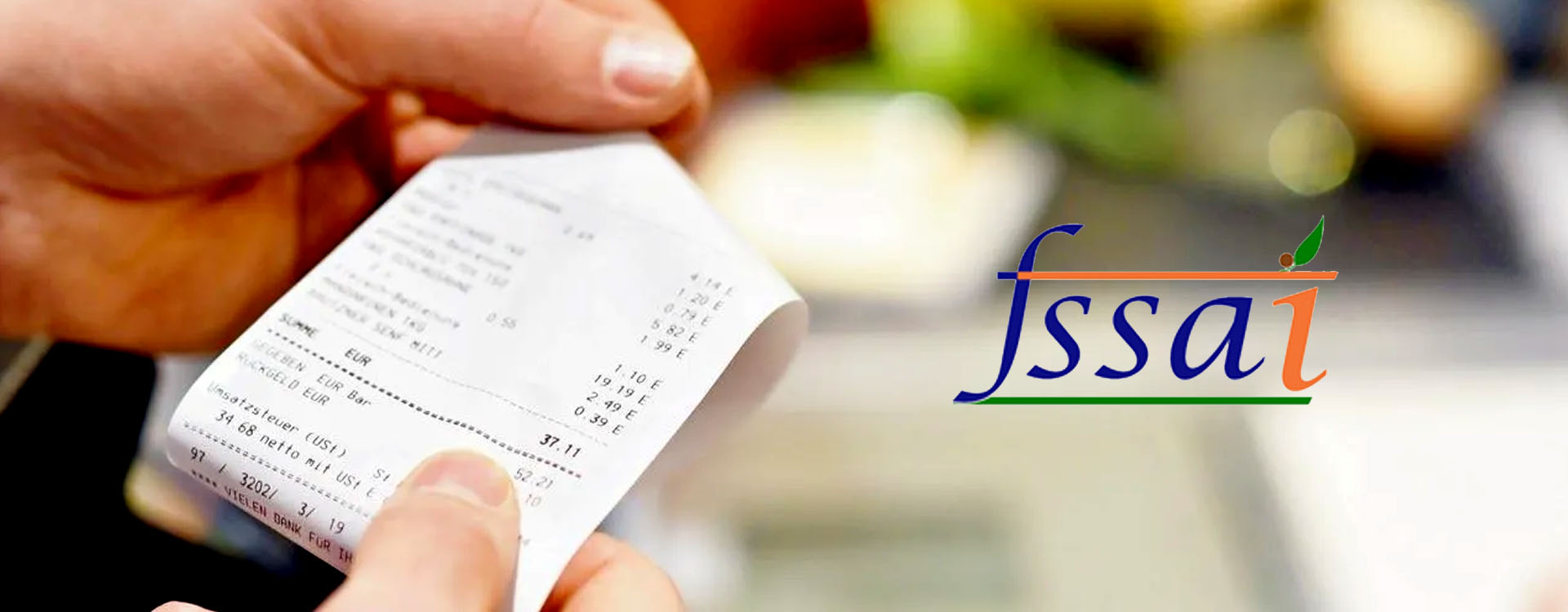The new regulation by FSSAI
A new order was issued by FSSAI (Food Safety and Standards Authority of India) according to which every food business operator must mandatorily possess the FSSAI License or must be registered with the food body before starting operations. If the FSSAI number is not mentioned on bills, this will be treated as non-compliance by the food business. FSSAI has directed licensing and registration authorities in the Indian food industry to increase awareness about this policy and to ensure that it is enforced.
What businesses need to do
As per new regulations, restaurants, mithai (sweet) shops, retail stores, and caterers will need to compulsorily mention their FSSAI number on cash receipts, purchase invoices, and food bills starting October of this year. They must also comply with the already present guidelines for compulsorily displaying the FSSAI number on packaged food labels. Small operators and eateries need to correct their existing protocols and align them with this new regulation.
How the Customer Grievance System will improve for Restaurants
When it comes to the food business, customer complaints are not novel or rare. But oftentimes, the discrepancies from the restaurant or food provider are too severe in terms of hygiene or health factor. Such business practices must be reported, and it should be made easy for the consumer to file a complaint. This is where the FSSAI number will improve the grievance system and work in favour of the consumer. FSSAI number is equivalent to a unique locator code for any food business within the country.
FSSAI has been keen on pointing out that a ‘robust customer grievance system’ is the mark of ‘any credible regulatory structure’ hinting at the need for compliance among food businesses of all kinds.
The biggest challenge faced by consumers who want to share grievances about food businesses is that the food business ecosystem is so vast here in India that the FSSAI number is not easily accessible to them. Without this number at hand, lodging a complaint becomes pointless and tedious. Information access should be easy in the case of a complaint. If the consumer possesses the FSSAI number of the food business they have a complaint against, submitting the complaint becomes simple.
‘‘
As per new regulations, restaurants, mithai (sweet) shops, retail stores, and caterers will need to compulsorily mention their FSSAI number on cash receipts, purchase invoices, and food bills starting October of this year.
What’s in it for me?
Transparency is always beneficial to any business and the restaurant sector has already lauded FSSAI’s move. Since customers will now be able to access information about any food business online, there will be better transparency between consumers and food operators. Micro, small, and mid-sized enterprises in the food industry will cultivate a better sense of awareness and responsibility henceforth regarding food safety and hygiene. This will foster improved customer relationships which is obviously profitable to the business in the long run.
By displaying the FSSAI number on food bills, small eateries will experience a sense of being organised, and will be recognised by India’s biggest food regulatory authority. In case of consumer complaints, there will not be room for false or incorrect accusations which often proves detrimental to small businesses. It will also become easier to locate any food business in the country no matter how small and businesses will obtain exposure amidst the high concentration of food businesses in India.




